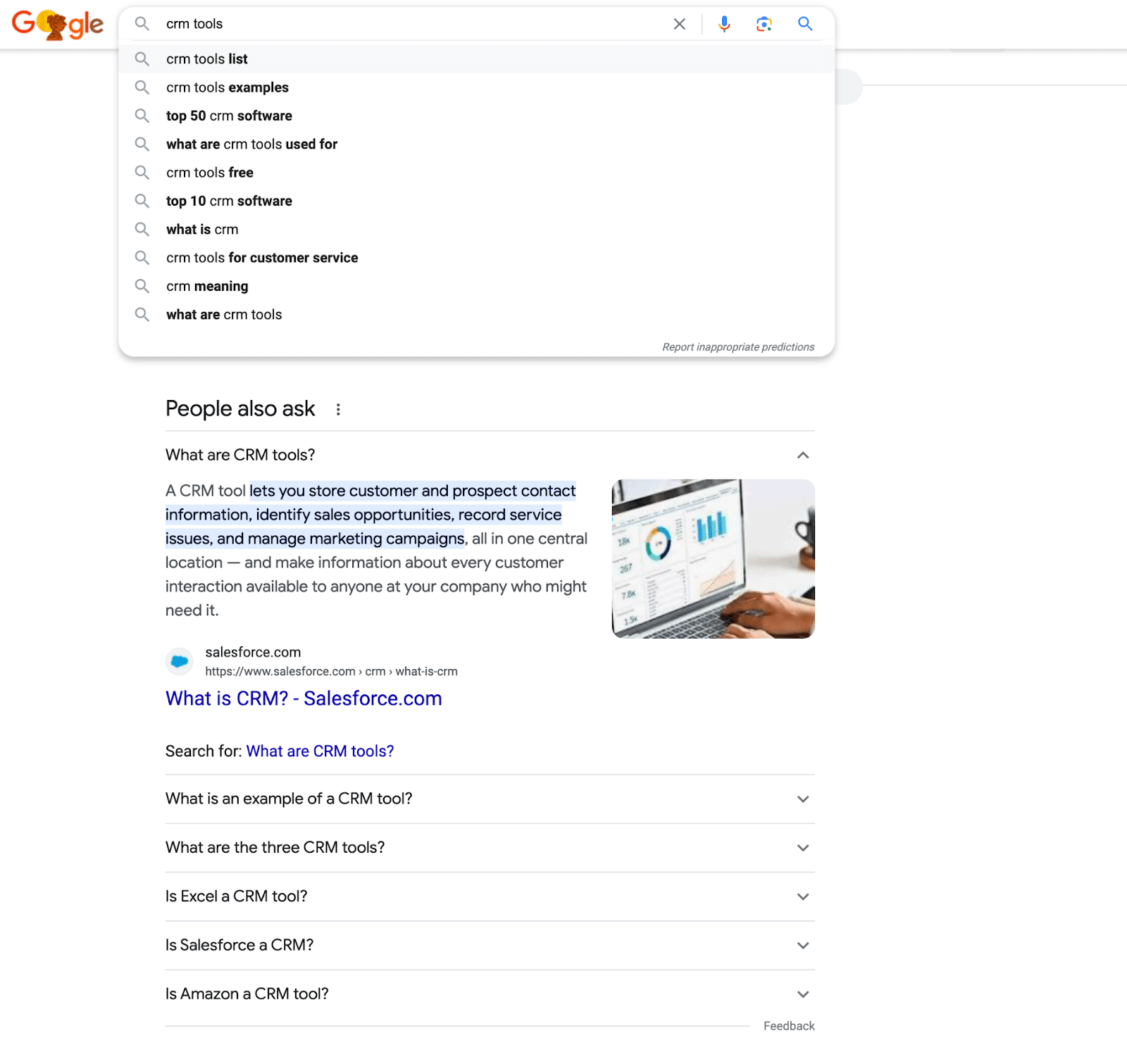Whether you’re on the agency or in-house side of SEO, I’m guessing you’ve fielded a request to “get us on top of the search results” for keywords dominated by giant competitors or entities.
The good news is that a giant can’t simply outspend you to outrank you.
The bad news? Standard SEO tactics likely won’t get you at the top of the search results in this situation.
So how do you go beyond a boilerplate SEO approach to get competitive?
It comes down to competitive, keyword and audience analysis.
A good process will help you recognize what your business has to say that adds value and uniqueness that isn’t yet part of the discussion.
This article will look at how to approach that goal – and how to earn traffic and make your brand stand out in the process.
Competitive keywords: Where to start?
Let’s say you’re working for a young, innovative CRM trying to eat into the market share of Salesforce, HubSpot, and the like.
On top of competing with these giants for broad CRM terms, you’re likely trying to outrank listings like G2 and listicles like CNET. All of those have domain-level advantages that make the climb steeper.
It’s a tall task, but there’s no sense in being daunted by the competition. Instead, start assessing where there’s room for you to stand out by looking at:
- What they’re saying.
- How their pages are set up to rank for the keyword.
Competitors, in particular, will tell you:
- What audience they’re going after.
- How the features of their product address the challenges of that audience.
A mapping exercise of your competitors and their ideal customer profiles should show you the blue sky available.
Presuming you’re not targeting the exact same audience, you’ll have a different set of needs and desires to address with your approach.
What kind of keyword research can give you some traction?
Google Keyword Planner (along with Semrush, Ahrefs or other keyword planning tools) will give you closely related topics and queries.
You can look at the SERP itself to see People also ask and suggested searches.
If you’re lucky, you’ll get nuggets that show you the actual features and benefits the users are looking to find with their original query.

Secondary keywords and themes will also emerge from studying discussions on Reddit, Quora, X (formerly Twitter) and maybe Threads (if they eventually use their hashtag for something other than discovering profiles).
The next step is to spend time on the psychology of the query.
Someone searching for “CRM” might be in research mode and looking for a landscape of options and capabilities, so you should consider content like a buying guide or “the evolution of CRM features.”
Meanwhile, a query like “free CRM trial” is much closer to the actual purchase decision, which means more transactional content is a better starting point.
Whatever you discern as the intent, don’t assume the other brands in the SERPs have reached the same conclusion in their ranking content. If none of them are, you have an opportunity to stand out.
Dig deeper: How to 10x rankings in competitive spaces using the ‘beachhead principle’
Work with your internal teams to do audience analysis
A deeper source of knowledge than anything you’ll find online: your clients or colleagues in product development and sales.
Take the findings of your research to them and ask what they think.
You’ll either get your angle validated or get surprising insights that help you produce distinctive content that connects in a way your competitors aren’t.
Case in point: one of my clients has a product-related keyword with “precision” in it. It’s a highly valuable keyword for them and a valuable concept for their audience.
Competitive research turned up the usual mix: big sites, direct competitors, and review sites on top of the SERP.
But none of the content really addressed “precision” in the context of the keyword. They confused it with accuracy and detail.
I met with the product engineers on the client’s team. While they verified that none of the existing content had “precision” correct in context, even they couldn’t come to a consensus on what the word meant.
What started as a project to write bottom-of-funnel content turned into a project to write a top-of-funnel piece that focused on the definition itself to establish authority otherwise missing in the space.
That piece ranks high in the SERP among giants a couple of weeks after launch, and the client is thrilled.
Dig deeper: An SEO guide to audience research and content analysis
If you’re still struggling with the main keyword, do an end-around
You won’t always get breakthroughs that clean, though.
Be ready to build momentum using longer-tail keywords and addressing more niche audiences that can establish a base for growth.
One webpage per keyword or audience can become an organism as you expand.
The other initiative to include is off-page signals, specifically from organic social media, which can get more people talking and thinking about your take on the keyword theme.
It won’t always work, but it’s always worth testing.
Targeting competitive keywords with competitive, keyword and audience analysis
It’s always easy to hear a mandate to rank for specific keywords as an unreasonable request from someone who doesn’t have the full context.
To me, it can be more of a gift. A couple of follow-up questions will tell you what business outcomes your client or teammate is trying to achieve with improved ranking.
This tells you that what you’re about to dig into carries significance.
Apply advanced thinking to your approach, and the resulting growth should get a pretty cheerful reception.
The post How to target highly competitive organic keywords: An advanced approach appeared first on Search Engine Land.
from Search Engine Land https://ift.tt/8zFMxsn
via https://ift.tt/HfsxQwK https://ift.tt/8zFMxsn
No comments:
Post a Comment